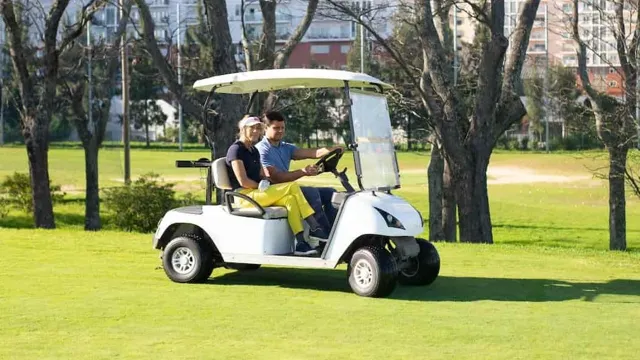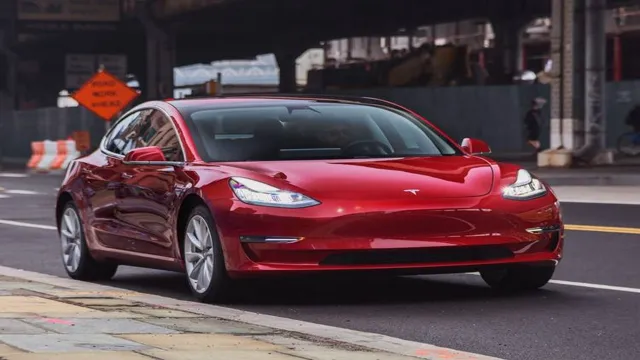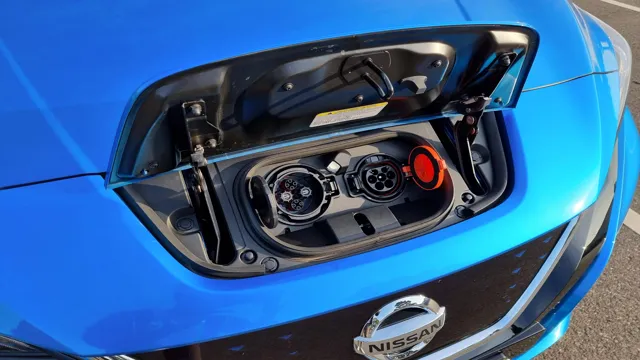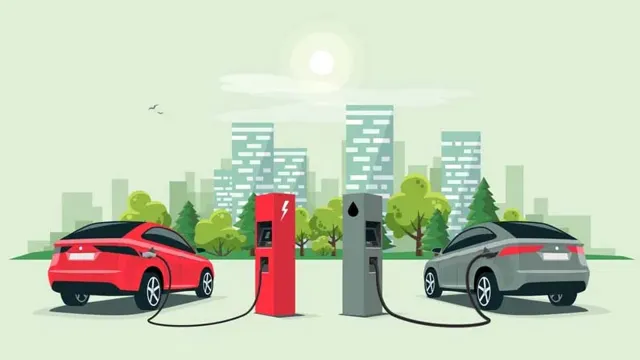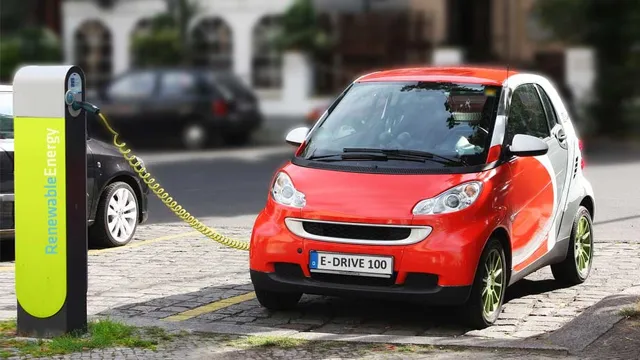How to Troubleshoot and Fix Your Electric Golf Car’s Speed Dilemma
Electric golf cars are incredibly fun to drive and make cruising through the golf course or local neighborhood an enjoyable experience. However, speed issues can arise, leaving you feeling frustrated and at a loss of what to do. Fear not, troubleshooting these issues can be done with a bit of knowledge and patience.
In this blog, we will discuss the common causes of electric golf car speed issues and provide solutions that can get you back on the road in no time. Whether it be a faulty battery or an issue with the controller, we will dive deeper into the complexities of electric golf car speed and provide actionable steps to diagnose and fix the problem. So sit back, relax, and let’s get your electric golf car zooming again.
Check the Battery Voltage
If you’re having trouble maintaining speed in your electric golf car, a simple yet vital check is to ensure the battery voltage. Your electric golf car depends on the battery to run effectively, and a low voltage can cause a drop in speed. You can use a voltmeter to read the battery voltage, and anything below 48 volts is an indication that your batteries need to be charged or replaced.
Remember that the voltage reading can vary depending on the temperature and usage of the vehicle, so it’s best to check when your battery is at rest. By keeping an eye on your battery voltage, you can ensure that your electric golf car runs smoothly and at speed. So, next time you experience a drop in speed, check the battery voltage, and get back to your game in no time!
Use a voltmeter to test the voltage of your golf car’s battery
When it comes to your golf car, one of the most important things to keep an eye on is the battery voltage. One of the easiest ways to do this is by using a voltmeter. Simply turn off your golf car and remove the key, then locate the battery under the seat or hood.
Attach the positive and negative leads of the voltmeter to the corresponding battery terminals. The voltage reading should be between 36-48 volts for a standard golf car battery. If the reading is lower, it’s time to charge the battery or consider getting a replacement.
Checking the battery voltage regularly can help prevent unexpected breakdowns and ensure your golf car runs smoothly for a long time. Don’t underestimate the importance of a well-maintained battery for the longevity of your golf car.
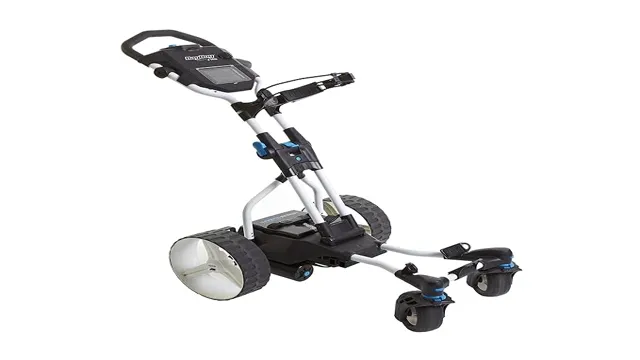
A low voltage can cause speed issues or a complete lack of power
When it comes to power tools, a low battery voltage can cause a range of problems, from speed issues to a complete lack of power. That’s why it’s important to check your battery voltage regularly to ensure that you’re getting the most out of your tools. A low voltage can be caused by a number of factors, including age, temperature, and usage, so it’s important to keep an eye on it.
Thankfully, testing your battery voltage is relatively simple and can be done with a multimeter. If you find that your voltage is low, it may be time to consider investing in a new battery, as a weak battery can not only impact the performance of your tools but also put you at risk for injury. By staying on top of your battery voltage, you can ensure that your tools are always ready for use and that you’re able to tackle any project with ease.
Inspect the Throttle Pedal
If your electric golf car isn’t maintaining speed, it could be a problem with the throttle pedal. This component regulates the speed of the vehicle, so any issues with it can cause problems. Start by inspecting the throttle pedal to see if there is any damage or wear and tear.
Check for loose connections or broken wires, as these can cause interruptions in the signal from the pedal to the motor. If everything appears to be intact, test the pedal’s resistance and make sure it’s within the manufacturer’s specifications. A faulty pedal can cause inconsistent speed or a complete lack of response from the vehicle, so it’s essential to give it the attention it needs to keep you moving safely around the course.
Remember to always follow proper safety procedures when inspecting and working on your golf cart.
Check the accelerator pedal and its connections
When it comes to your car’s accelerator pedal, it’s essential to ensure that everything is working correctly. The throttle pedal is responsible for controlling the engine’s speed by regulating the amount of air that enters the engine. If the pedal doesn’t function correctly, it could lead to some dangerous situations.
One way to inspect the throttle pedal is to check its connections thoroughly. You should start by inspecting the cable that connects the pedal to the engine. Look for any signs of wear and tear, such as fraying or corrosion.
Additionally, ensure that the wires are securely connected and not loose. If you notice that anything is amiss, it’s essential to get your car inspected by a qualified mechanic immediately. Ignoring any issues with the accelerator pedal could lead to reduced performance or, in worst-case scenarios, accidents on the road.
A worn-out or damaged pedal may cause slow acceleration and reduce speed
If you notice that your vehicle is starting to accelerate slowly or has reduced speed, it may be time to inspect your throttle pedal. A worn-out or damaged pedal can cause all sorts of problems and should be addressed as soon as possible. It’s important to remember that the throttle pedal is the main control for the acceleration of your vehicle, so any issues with it can greatly affect your driving performance.
One common issue with a damaged throttle pedal is that it may become stuck in a certain position, causing your vehicle to accelerate uncontrollably. This can be extremely dangerous and should be immediately addressed by a professional mechanic. Additionally, a worn-out pedal may not provide the same level of response or feel as it once did, making it difficult to properly control the acceleration of your vehicle.
Therefore, it’s essential to regularly inspect your throttle pedal for any signs of wear or damage to ensure your safety and optimal driving performance.
Examine the Motor and Controller
If your electric golf car won’t maintain speed, the first thing to examine is the motor and controller. These components work in tandem to control the speed of the cart, so any issues with either one can cause a drop in speed. To start, check the motor’s brushes, as worn or damaged ones can limit power output.
Also, inspect the controller for loose connections or damage. If everything seems okay, you may need to have a professional diagnose and repair the system. It’s essential not to ignore this issue, as a slow golf cart can be both frustrating and dangerous on the course.
Remember, maintaining and repairing your electric golf car is essential for safety and enjoyment, just like changing the oil in your car to keep it running smoothly.
Inspect wires, connections, and brushes on the motor and controller
When it comes to inspecting your electric bike, it’s crucial to take a close look at the motor and controller. These two components work together to make your bike go! Start by examining the wires and connections on the motor. Look for any signs of wear and tear, like exposed wires or frayed connections.
If you notice any damage, it’s important to replace the affected parts immediately to avoid further damage or safety hazards. You should also check the brushes on the motor. These small components wear down over time and will need to be replaced periodically to ensure smooth operation.
Moving on to the controller, begin by checking for any loose connections or damaged wires. You’ll also want to take a look at any fuses and switches to make sure they’re in good working order. Taking the time to perform routine maintenance on your electric bike motor and controller can extend the life of your bike and ensure a safe and enjoyable riding experience.
Dirty or damaged components may cause an erratic speed performance
When it comes to an erratic speed performance, examining the motor and controller is crucial. Dirty or damaged components can cause serious problems. Motor brushes, for example, need to be cleaned and replaced regularly.
If they’re worn out or misaligned, they won’t make good contact with the motor commutator, which can cause your motor to perform poorly. Dirt or debris can also find its way into your controller, which can cause problems with its stability. This is why it’s important to open up your motor and controller periodically to check for any damage or dirt that may be present.
By doing so, you can help ensure that your electric motor runs smoothly and efficiently, without any speed fluctuations or sudden stops. So don’t hesitate to get your hands dirty – taking care of your motor and controller is one of the best ways to keep your electric motor running smoothly.
Contact A Professional for Assistance
If your electric golf car won’t maintain speed, it can be frustrating and puzzling. There could be several reasons why your vehicle is struggling. However, the most intelligent decision is to contact a professional technician who specializes in fixing electric golf cars.
They have the necessary skills, knowledge, and experience to diagnose the problem and fix it efficiently. It’s crucial to understand that electric golf cars are intricate machines that require maintenance and regular checkups to stay in excellent condition. By ignoring the underlying issue, you may end up causing further damage to the vehicle, which may result in expensive repair costs.
So, if you encounter any issues with your electric golf car, don’t hesitate to seek professional help immediately. The sooner you act, the better chances you have of getting your vehicle back on track.
If problems persist, it is recommended to contact a professional golf car technician for assistance
When it comes to golf car maintenance and repair, sometimes things can get a bit too complicated for the average enthusiast. In such cases, it is always recommended to seek the help of a professional golf car technician. They are trained and equipped to handle various golf car problems and can help you get your golf car back in working order as quickly as possible.
From electrical and mechanical issues to bodywork and painting, professional golf car technicians have the expertise and tools necessary to tackle any golf car issues. They can diagnose the problem accurately and offer you practical solutions that can extend the life of your golf car. So, if you’re experiencing problems with your golf car that seem to be beyond your understanding, don’t hesitate to contact a professional for assistance.
They’ll save you time, money, and effort and ensure that your golf car is always running smoothly and efficiently. Remember, it’s always better to be safe than sorry!
Conclusion
In conclusion, when your electric golf car refuses to maintain speed, it’s like trying to drive a Ferrari with a flat tire – it’s not going to get very far. So, if you find yourself struggling with speed issues, remember to check your battery charge, tires, and any potential electrical malfunctions. And if all else fails, just blame it on a pesky gremlin in the engine, and hop onto a traditional gas-powered cart instead.
“
FAQs
What are some common causes of an electric golf car not maintaining speed?
Common causes include a faulty speed sensor, low battery voltage, or a malfunctioning controller.
How can I troubleshoot my electric golf car if it won’t maintain speed?
First, check the battery voltage and ensure it is fully charged. Next, inspect the speed sensor and controller for any signs of damage or wear. Finally, test the throttle and brake to ensure they are functioning properly.
Can a worn-out motor cause my electric golf car to lose speed?
Yes, a worn-out motor can cause a decrease in speed and may need to be replaced.
Is it possible to increase the speed of an electric golf car?
Yes, there are some modifications that can be made to increase the speed of an electric golf car, such as upgrading the controller, motor, and batteries. However, it is important to check local laws and regulations before making any modifications.
